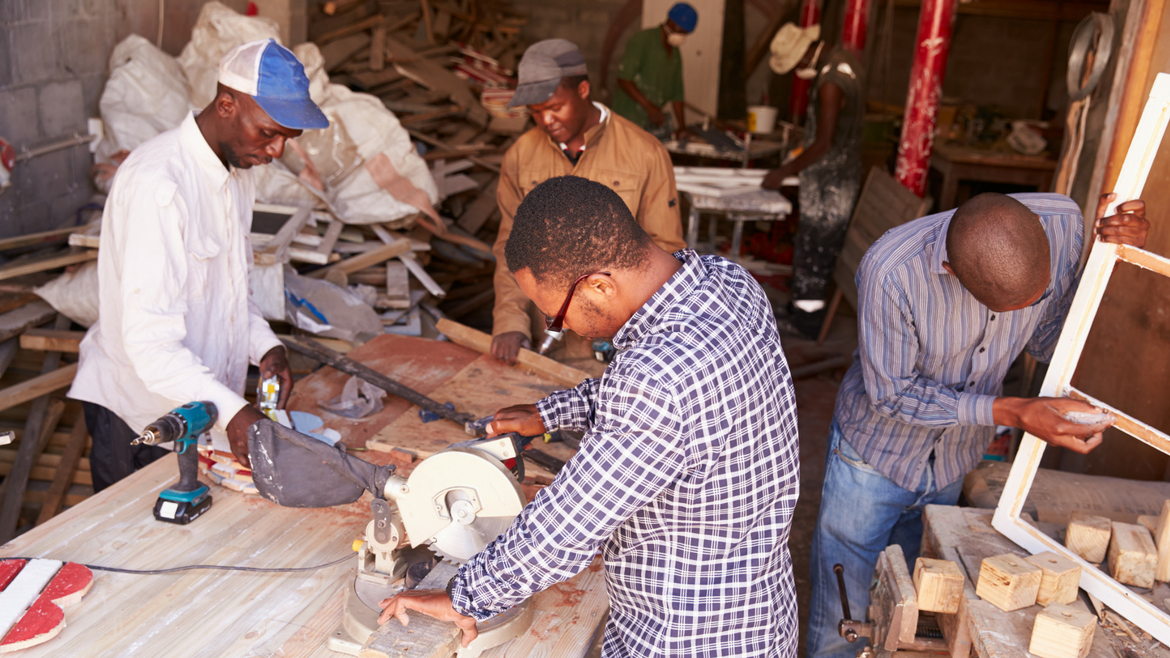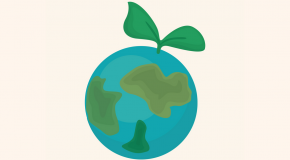The Economist Intelligence Unit (EIU) asked Ngozi Okonjo-Iweala, former finance and foreign minister of Nigeria, about the drivers of prosperity and job creation in Africa and the developing world. This Q&A is the fourth in a series sponsored by the United Nations Foundation that will explore progress towards the Sustainable Development Goals (SDGs) and what remains to be done. In 2015 more than 190 countries agreed to prioritise these 17 UN-backed goals as national targets. These objectives include improving education, economic growth, gender equality, infrastructure, health and industrial innovation.
As former finance and foreign minister of Nigeria (and the first female one), Ms Okonjo-Iweala led a tireless crusade against corruption that helped attract investment to Africa’s largest economy. In 2012, she raised a red flag concerning growing oil theft under the country’s president at the time, Goodluck Jonathan, as stolen oil cost the Nigerian economy US$1bn a month. At the World Bank, where she served as managing director from 2007 to 2011, Ms Okonjo-Iweala pushed for additional assistance for low-income countries. Her integrity and leadership helped put her on the World Bank’s shortlist to assume its presidency. Ms Okonjo-Iweala is the chairperson of the board of Gavi, the Vaccine Alliance, and a senior adviser at Lazard, where she is a member of the firm’s sovereign advisory group focused on helping countries manage debt and restructure their finances.
Excerpts from an interview, as told to the EIU.
EIU: What incentives, programmes or government policies are needed to promote development and prosperity in Africa and developing countries around the world? Who should lead these efforts? Where or to whom should these programmes be directed?
Ngozi Okonjo-Iweala: The first job for government is to create a macroeconomic environment that lets people seize opportunities with low inflation and reasonable interest rates while keeping prices and the exchange rate aligned to fundamentals of the economy. You need to couple this with transparency and a strong anti-corruption stance to let your citizens and businesses know that there is a level playing field.
Which sectors create the most jobs? Let’s take agriculture. There is a lot of potential to improve the value chain in Africa because we grow many primary products that are exported to be processed. That takes away jobs. Why can’t the private sector invest in transforming those products in Africa? Instead of exporting cocoa to Belgium, manufacture chocolate in Ghana or in Côte d’Ivoire. Instead of exporting cotton or hides and skins, set up mills and factories to do the processing and manufacturing in Africa, like Ethiopia has done with China for shoes. If you create a value chain, you create many more jobs.
Entrepreneurial citizens are important for prosperity in developing countries, but they also need a supportive regulatory and business environment. Entrepreneurs need access to credit, to electricity and to water. They need the capacity to market their goods. Governments, with the help of the private sector, need to invest in infrastructure to support entrepreneurs and to develop specialised programmes that target small and medium enterprises (SMEs). For example, the Nigerian government, with a consortium of actors including the German government, the World Bank and the African Development Bank, created the Development Bank of Nigeria to support SMEs with access to credit.
EIU: The World Bank recently announced a record US$57bn in financing for sub-Saharan Africa over the next three fiscal years. Of that, US$8bn comes from private-sector investment. What needs to be done to mobilise more private investment in Africa?
Ngozi Okonjo-Iweala: You have to look at the conditions that stand in the way. One is the perception of risk. The return on investment in Africa can rise to 30% and above, so it is profitable to invest in Africa. People perceive risk in Africa to be much higher than it really is. Political instability in one country, for instance, may overshadow news of ventures that are delivering high return on investment in other countries. Remember, the continent has 54 countries, so there is a diversity of performance. One way to confront that perception is by offering financial instruments that de-risk investment. There are many ways of doing this, and it allows the private sector to have confidence to invest further. Governments also need to maintain policy consistency to minimise uncertainty for the private sector.
Infrastructure is the second area to mobilise investment. Without infrastructure it is very difficult to attract private investment. Private investors need supportive infrastructure like industrial parks, electricity and access to roads. It is estimated that Africa will need US$93bn–120bn in infrastructure investment per year. Governments cannot do it alone. There have to be public-private partnerships to bring capital and know-how in execution.
Third, remove bureaucratic hurdles that stand in the way of investment. Requiring businesses to go to multiple agencies to get all sorts of licences and permits leads to corruption. Simplify the processes for investors to invest.
Lastly, governments should attract domestic investment too. If international investors do not see domestic investors putting money into Africa, they will not be as willing to invest either.
If you focus on those areas, you will go a long way in attracting private investment.
EIU: What existing partnerships have been especially effective in driving development? What is needed to encourage similar collaborations, and whom do you see as key stakeholders?
Ngozi Okonjo-Iweala: Gavi, the Vaccine Alliance, brings together governments, the private sector, civil-society organisations and foundations—Unicef, the World Health Organisation, the World Bank, the Bill & Melinda Gates Foundation—to deliver one goal: immunisation of children in the developing world. This partnership has led to nearly 580m children being immunised in over 73 developing countries since Gavi was formed in 2000. Immunisation is one of the most effective instruments for delivering on the SDGs. One dollar of investment in immunisation delivers US$44 in avoided health costs and lifetime benefits. That is a very high return on investment.
To be a successful partnership, everyone at the table needs to see that the common goal delivers benefits for all. Gavi has the power to aggregate demand for vaccines from dozens of countries and thereby assure volume. This helps the pharmaceutical industry to offer lower prices to developing countries whilst still covering their costs. Citizens get immunised and businesses get healthy workers.
You need to look at each sector—whether in education or in building infrastructure—and ask, “What is the bottom line for each actor?” Once you can show a common benefit for all, it is much easier to form successful partnerships like Gavi.
EIU: What are ways that countries can measure their progress on development?
Ngozi Okonjo-Iweala: If you look at the SDGs, each has a list of indicators to monitor whether countries are really delivering on development, from ending hunger to improving health and education and vaccinating children.
The most important thing is for each country to measure itself. How is it doing alongside the indicators? Is it really lifting more people out of poverty? Are people still going hungry? Are children being vaccinated? Are all children in school and getting a quality education, such that they are trained to meet the job requirements of the future? Do people have access to energy?
One good thing about the SDGs is that they are universal. The SDGs really measure the quantity and quality of life for people. It is not just, “Do people have higher incomes?” It is, “Do they have access to services to make their lives materially better?” The most important thing for people in developing countries is that they monitor their progress, and civil-society organisations can be instrumental in helping countries do this.
EIU: You want “a more sophisticated dialogue” regarding aid. For instance, the African Risk Capacity (ARC), a specialised agency of the African Union, enables member nations to prepare for crises by relying more on their own budgets and by paying insurance premiums against severe drought or extreme weather. What other sophisticated responses beyond aid can support economic growth?
Ngozi Okonjo-Iweala: First, we need to realise that most African countries already finance the bulk of their development, so they need to continue and do more. They also need capacity to raise more domestic resources. The countries that give aid are focusing more and more internally on their own populations and their own problems. There are nationalist movements around the world, so we have to be realists. If the future of aid isn’t looking bright, what other financial instruments are available beyond aid?
The ARC uses sophisticated instruments of insurance to manage natural disaster–related events. Countries can pay a premium, based on a model developed by ARC, to insure against drought. They do not have to wait for the UN to make an appeal for aid; member states can get money right away to take care of millions who might otherwise starve or die. They can start immediately. It saves lives.
There are other innovative financial instruments. Social-impact bonds can deliver financing for development by those willing to take somewhat lower returns in order to deliver a social good. These bonds are subscribed to by private investors, governments, philanthropic organisations, foundations and the like. You have instruments like the International Finance Facility for Immunisation used by Gavi to raise money on capital markets; it is backed by donor guarantees and frontloads resources for immunisation, thus saving millions of lives.
By the way, a lot of young Africans are innovating in finance and other areas, and they are creating things, like ways to clean water or to improve sanitation, that can shape development and the environment. But they don’t have anyone to invest in their ideas or products. This needs to change.
EIU: What needs to be done to ensure Africa remains on track to meeting SDG targets related to development? Is it combatting corruption or supporting youth employment? Who should lead in addressing areas of concern?
Ngozi Okonjo-Iweala: You need leadership, and you need it to come from all levels, from the central government to the provinces and local communities. Women are good leaders and should be supported especially at the local level. Civil society has to hold the leadership of countries accountable for delivering on SDG targets. But most of all, if Africa is to remain on track, it needs resources. Lifting people out of poverty means investment in infrastructure, health and education. These resources have to come from the domestic environment as well as the outside, from government as well as the private sector. Government has to be transparent and fight corruption.
There also has to be a focus on youth employment! Absolutely. Sixty percent of Africans are under 25 years of age, and in the next decade, over 200m young people will be looking for work. Therefore, the issue of youth employment is paramount for the continent. There has to be a focus on sectors that create jobs and support our young entrepreneurs. We must also look at the creativity of young people using technology as a means to employ themselves and others. Structural transformation and diversification of the African economy are vital.







